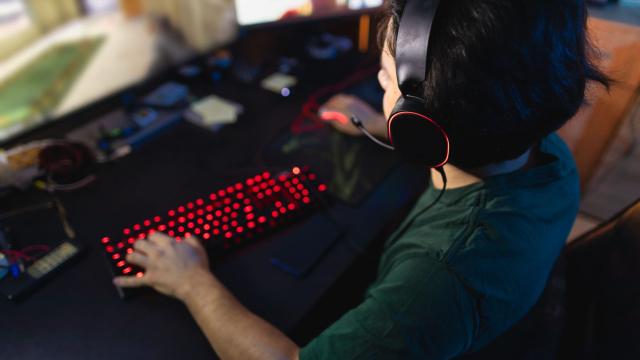The Queensland University of Technology will use a portion of its NHMRC Ideas grants to develop better tools to help those battling internet gaming disorder.
The grants allow an international team of researchers to “co-design with players a solution to minimise harm and treat problematic play while also identifying ways to maximise the benefits of video game play”.
A core part of the QUT study is outreach to those living with Internet Gaming Disorder (IGD). IGD is a recognised temporary psychiatric disorder. To be diagnosed with the disorder, patients must display five of nine core symptoms in a 12-month period. According to a study from the US National Library of Medicine, these symptoms include:
- Preoccupation with video games (i.e. “preoccupation”)
- Experiencing unpleasant symptoms when playing video games (i.e. “withdrawal”)
- The need to spend an increased amount of time involved in video games (i.e. “tolerance”)
- Failed attempts to control participation in video games (i.e. “lose control”)
- Losing interest in past hobbies and entertainment as a result of, and with the exception of, video games (i.e. “surrender from other activities”)
- Continue to use video games despite having knowledge of psychosocial problems (i.e. “continuation”)
- Deceiving family members, therapists, or others regarding the number of video games (i.e. “fraud”)
- Using video games to escape or eliminate negative feelings (i.e. “escape”)
- Harm or lose relationships, work, or education or significant career opportunities because of participation with video games. (i.e. “negative consequences”)
The result, according to the USNLM study, is anxiety compounded by the lack of focus on work, study, and relationships. Patients diagnosed with IGD typically report feeling withdrawal symptoms, worry, and general, persistent anxiety. This anxiety is also connected to somatic symptoms like muscle tension, trouble sleeping, and irritability.
Cases like these are people Professor Daniel Johnson and his team hope their study can help.
“The 13-fold increase in video game play in the past decade has raised concerns about the potential for negative outcomes such as depression, anxiety, and social isolation,” he said in a statement.
“The majority of 15 to 34-year-olds play video games, and this is the peak age for onset of mental health problems.”
Prof. Johnson stressed that there is no confusion between healthy play habits and those that are addictive or destructive.
“We also know from our research video gaming has positive benefits for this age group: moderate levels of playing are associated with positive emotions, improved mood, emotion regulation and emotional stability,” he explained.
“Playing video games can be a healthy means of relaxation, stress reduction and socialising — many gamers will tell you they’ve built great friendships online,” he said.
“People who play video games in moderation have been shown to be less depressed and have higher self-esteem compared to those who don’t play or who play excessively.”
The study will leverage the services of Discord, with Prof. Johnson signalling the app as a space in which to stage interventions because it presents a safe environment those struggling with internet gaming disorder already inhabit.
“Our previous research has identified the potential key role that need satisfaction from gaming and obsessive passion has in understanding problematic play and IGD,” Prof. Johnson said.
This is not the first time QUT has studied the affect of gaming on the mind and body. In 2018, esports researcher Michael Trotter studied the psychological differences between gamers drawn to high-level esports and those who compete at home with friends. A related 2020 study, carried out by Flinders University in Adelaide, examined the connection between esports players and sleep disorders.
The drive to know more about the affect that gaming has on us is an important one. As games become more service-driven, designed to hook players and keep them on a proverbial treadmill for longer, studies like these will prove critical. It’s important to know how games can affect us so that we can better protect those most vulnerable. It’s hard to imagine a pastime we love hurting us in this way, but that shouldn’t make us blind to it either. We wish Prof. Johnson and his team every success.

Leave a Reply